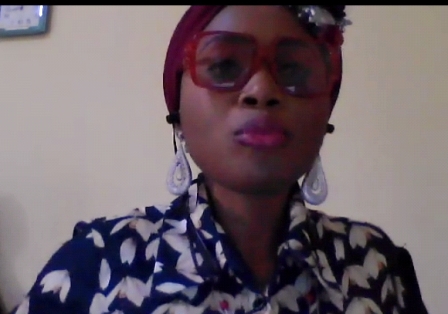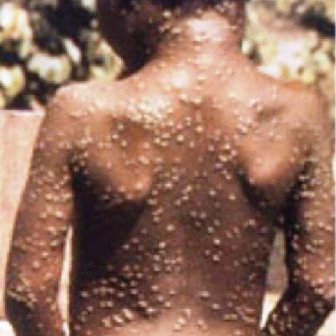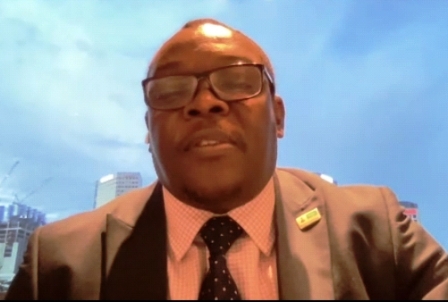…204 suspected cases also reported

Dr. Lateefat Amao
Incident Manager, National Monkeypox Emergency Operations Centre, making her presentation
The Nigeria Centre for Disease Control, NCDC, has disclosed that between January 2022 till date that the country has witnessed about 204 cases suspected Monkeypox, MPX. And out of the suspected cases, 62 cases were confirmed to be positive.
NCDC made the disclosure at the virtual media dialogue on Monkeypox titled:
“Monkeypox Spread, Infodemic and Public Health Response in Nigeria.”
The event was meant to enable the media, health advocates and stakeholders to better understand the monkeypox situation in Nigeria and important facts.
In her presentation, the Incident Manager, National Monkeypox Emergency Operations Centre, Dr Lateefat Amao, said between 2017 and June 2022, that about 25 States have recorded cases of Monkeypox in Nigeria.
She said: “Monkeypox is endemic in some parts of Nigeria. The epidemic has been mostly stable over the last five years since the resurgence. Some progress has been made in improving, prevention, detection and response.
“However, obvious challenges and gaps remain. There is a need for sustained MPX preparedness and response efforts with the support of all stakeholders and partners.
Detailing the sequence of the distribution and test positivity rate of MPX over the last five years, Amao said: “In 2017 there was 198 suspected cases whereas 88 cases was confirmed and test positivity rate, TPR % was 44.4.
“In 2018, suspected cases were 116, 49 confirmed and TPR was 42.2.%
“In 2019, 65 suspected cases, 47 cases were confirmed and 72.3 TPR %.
In 2020, there were 35 suspected cases, then eight confirmed cases and 22.8 TPR %.
“In 2021, there were 98 suspected cases and 34 confirmed cases then 35.0 TPR%.
Finally, in 2022, 204 suspected cases, then 62 confirmed cases and 30.4 TPR %.”
She noted that the case appeared to have gone up because of great surveillance by the team together with great awareness.
She emphatically pointed that before 2022, South East, South South and South West were the regions that these cases were confirmed but due to great awareness and efforts of the NCDC cases were discovered in other regions that were under reported such as Zamfara, Adamawa, Platue and Taraba.
Meanwhile, the Director General, Nigeria Centre for Disease Control & Prevention, Dr Ifedayo Adetifa, said the dialogue was part of risk communication and infodemic management efforts by the NCDC in collaboration with the World Health Organisatio, WHO and partners; to strengthen the Monkeypox response in Nigeria while contributing to the global response.
According to him, “Over the last five years, Nigeria has witnessed catastrophic effects of infectious diseases such as Ebola, Lassa fever, Dengue, rabies, yellow fever, COVID-19, and most recently, monkeypox.
“As we continue to ensure that all infectious diseases receive adequate attention using a One-Health approach, we remain grateful to our partners including the WHO-AIRA (Africa Infodemic Response Alliance) and Breakthrough Action Nigeria for the support they provide to institutionalise a system for effective management of infodemics associated with these outbreaks in the country.
“This birthed the National Infodemic Management Team (NIMT) domicile in NCDC that conducts active social and community listening to identify information gaps relating to the monkeypox outbreak, with critical support from partners.
“Since the 1st of January this year, several countries worldwide have been affected by an unprecedented outbreak of monkeypox, leading to over 3,000 laboratory-confirmed and one death from the virus as of 22nd June 2022.
“In Nigeria, we have seen an uptick in MPX cases. If the current trajectory continues or is sustained, we may match or exceed the peak number of cases seen in 2017 when MPX re-emerged.
“However, we believe ongoing efforts to strengthen surveillance, increased awareness from global news headlines and our investments in RCCE have also contributed in part or while to this observed increase in cases. We will continue to monitor the situation even as we sustain ongoing response efforts.”
He noted that prevailing media perception and misinformation on monkeypox has fuelled false narratives about the virus, the potential risk of discrimination and stigmatisation from this requires urgent social and behavior change intervention
He said: “Since its sudden resurgence in 2017, a multi-agency Technical Working Group (TWG) coordinated at the NCDC has led Nigeria’s efforts to improve the detection, prevention, and control of monkeypox.
” Importantly, we have gained a better understanding of the epidemiology of the virus to inform preparedness and response in-country
“This has been achieved through increased surveillance at all levels, strengthened public health laboratory services, training of healthcare workers, development of guidelines on
IPC and case management for the disease and other critical areas
“Currently, genomic sequencing is ongoing at NCDC’s National Reference Laboratory to identify possible mutations and the epidemiology of the virus,” NCDC DG stated.
Also speaking, the WHO Country Representative, Dr Walter Mulombo, urged journalists to address misconceptions about Monkeypox disease which has continued to fuel false narratives about Nigeria globally.
“What is important is to avert any potential inequitable access to vaccines experienced by African countries including Nigeria in the early stages of a pandemic,” he said.
Mulombo, who was represented by the Deputy Country Rep- Dr Alexander Chimbaru said that the rumours and misinformation would cause more harm and loss of lives than the monkeypox disease itself.
“There’s need for us all to have one coordinated response to monkeypox locally and globally to avoid it from becoming another pandemic. Which by implication, means equitable access to essential tools, resources and information exchange.
“Therefore, what is extremely important now with monkeypox is to avert any potential for a repeat of the inequitable access to COVID-19 vaccines experienced by African countries, including Nigeria, early in the pandemic.
“There has not been any use of smallpox vaccines for monkeypox outbreaks in Africa. Since the eradication of smallpox, small quantities of smallpox vaccines have been kept in a few national stockpiles.
“They are very limited and not in use for vaccination,” he said.
He said that a new vaccine (MVA-BN) against smallpox and monkeypox has been approved but is not yet widely available outside national stockpiles.
- Additional report by NAN


